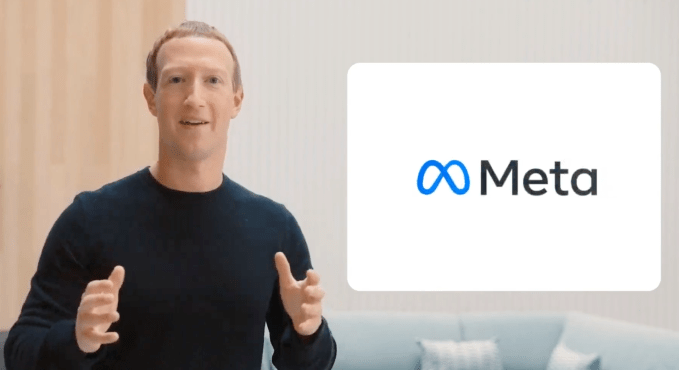Hello friends, and welcome back to Week in Review!
Last week, we talked about the “de-stonkifying” of the market. This week, we’re looking at a wounded Facebook/Meta that finds itself backed into a corner.
If someone forwarded you this message, you can get this in your inbox from the newsletter page, and follow my tweets @lucasmtny.

the big thing
Meta had a bad week — like history-making rough.
The Facebook parent company saw its stock price get bludgeoned after a bad earnings report showcased that Apple’s ad-blocking changes are shaving billions off its books and the company’s crown jewel — the Facebook platform — has stopped growing and actually shrank this quarter.
The company’s stock tanked by more than 26%, representing a $230 billion reduction in market cap and a $31 billion drop in Zuckerberg’s personal net worth. Plenty of analysts shared that this was the biggest dollar amount single-day drop for a company’s market cap ever.
The company’s rough turn of luck couldn’t be happening at a worse time; as Facebook looks to pivot the broader company toward the “metaverse,” they also shared that they spent nearly $10 billion on the effort — and don’t expect to recoup that money any time soon. While Meta is managing to ship more and more Quest headsets, there anecdotally hasn’t seemed to be much interest in the company’s Horizon Worlds platform, and there are few shortcuts toward finding an audience on an unproven hardware platform.
The AR/VR world is increasingly proving to be a tough place to do business. Apple has delayed its own headset again and again. This week, Insider reported on the struggles that Microsoft was enduring in its HoloLens division, sharing that the company was scrapping plans for a third-generation headset amid a lack of clarity in its path toward becoming a player in the untapped consumer AR space. Meanwhile, engineers got a look at the next-generation of Magic Leap’s hardware. This writeup from industry analyst Karl Guttag showcases how Magic Leap has turned away from several of the key technologies it raised billions of dollars to develop with its latest hardware, which he nevertheless believes will “blow away” the HoloLens 2 in image quality.
The point is, this stuff is hard, and the people who have been building in public are hurting even as they spend billions to develop the tech. There’s no straightforward road for Meta to follow; they have to blaze a trail where others are actively failing and keep the rest of their company together while they do so.
VR already a polished platform and could self-sustain I’m sure, would imagine bulk of the $10B is AR which is probably 7-10 years worth of iteration from being a revenue generator which is only an easy investor sell when your position in market is entirely secure.
— Lucas Matney (@lucasmtny) February 6, 2022

other things
Here are a few stories this week I think you should take a closer look at:
Snap has one hell of a week
While Meta’s week was downright awful, Snap had a strange reversal of fortunes that saw its stock plummet and then dramatically rebound hours later. The double-digit drop actually came from Meta’s earnings report, which investors feared would be indicative of a broader revenue slump across social media stocks. When Snap actually showcased a healthy bottom line it its earning release, the stock shot back up, gaining nearly 60% Friday.
Apple launches its first local newsletter
Apple’s pivot to services has been a mixed bag, and the company is looking to expand the appeal of its Apple News service to a wider swath of free and paid subscribers. This week, the company rolled out a local newsletter in the San Francisco Bay Area, bringing bundled local news curated by the Apple team.
“If Apple chooses to roll out more daily local newsletters, it will have several markets to choose from. Today, Apple News offers local news coverage in 11 markets, including San Francisco, the Bay Area, New York, Houston, Los Angeles, San Diego, Sacramento, Miami, Charlotte, San Antonio and Washington, D.C.,” my colleague Aisha notes.
Crypto startups are making it easier to build crypto clubs
I’ve been writing quite a bit about crypto lately, and this week I dug into a particularly interesting facet of the industry called DAOs. The groups essentially allow a number of anonymous and pseudonymous users to collectively make decisions and function like mini crypto-backed governments. I talked to a handful of stakeholders in the space who see a bright and broad future for the collectives.
“The fact that a DAO is just software that can can be spun up with the click of a button… but can catalyze thousands or tens of thousands of people — eventually we expect millions of people or larger numbers — that all put together capital and put together ideas to work together for some common goal… we see that as almost the purest vision of what web3 and crypto are all about,” a16z GP Ali Yahya told TechCrunch in an interview.

added things
Some of my favorite reads from our TechCrunch+ subscription service this week:
How to recruit when your startup is in stealth mode
“…A startup’s founding team can be the difference between an industry-changing unicorn and just another failed venture, making early recruitment one of the most critical processes in a company’s first year. But the war for tech talent has rarely been so brutal. Large technology companies are growing at amazing rates and startup funding is at an all-time high. Great candidates have more choices than ever, and hiring them is harder than ever before…”
As public valuations fall, are private valuations evolving fast enough?
“…The question before us is simple: Can the investing dynamics of the venture capital market slow to the point that startup valuations (expectations, essentially) reach parity with potential exit valuations (forecasts, essentially) before too many young tech companies are priced like early- to mid-2021 exits are still possible?“
Crypto investment starts 2022 with a roar
“…Data from a new venture capital fund and recent funding rounds underscore the pace of deal flow the crypto market has ahead of it, indicating that bets placed on blockchain-related startups will continue despite some wobbly indicators from the decentralized market…”
Thanks for reading, and again, if someone forwarded you this message, you can get this in your inbox from the newsletter page, and follow my tweets @lucasmtny.































Comment